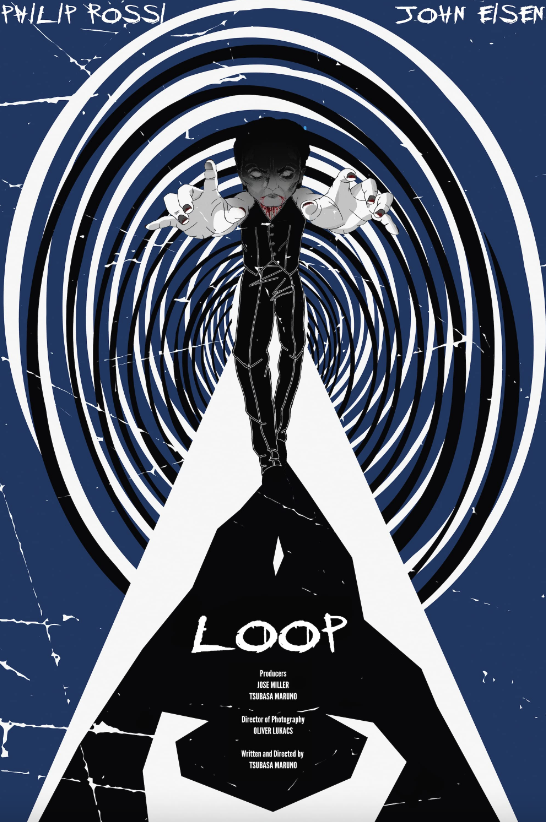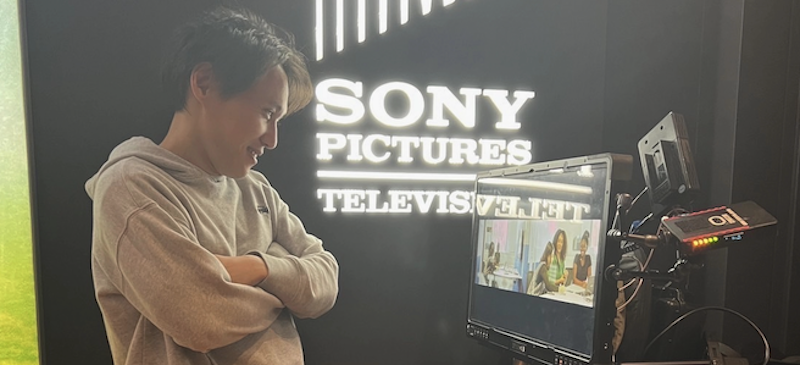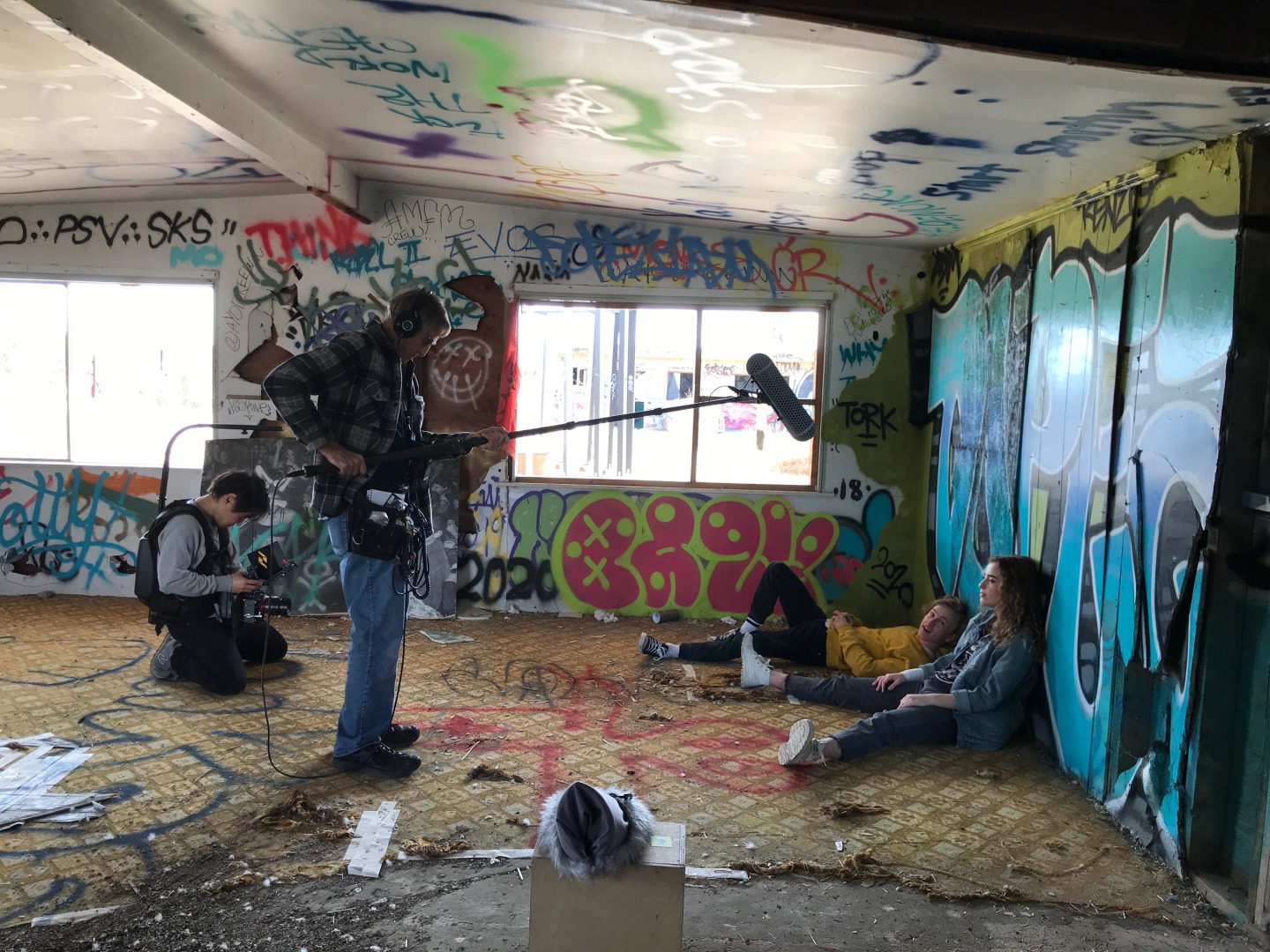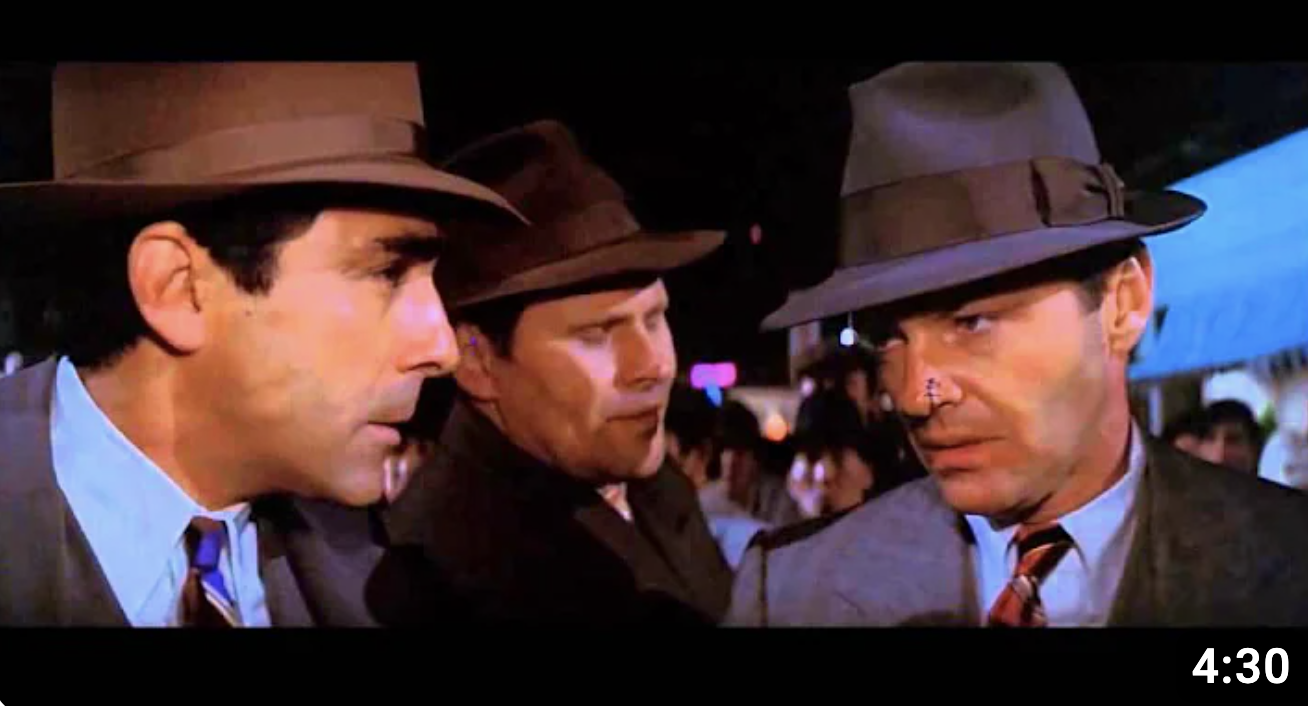
Filmmaker Maruno Aspires to Oscar Storytelling like Everything Everywhere All at Once & Chinatown
“If Chinatown had ended happily, we wouldn't be sitting around talking about it today. (In fact) happy endings make me puke.—Roman Polanski”
Enthusiastic filmmaker Tsubasa Maruno notes that even though writer Robert Towne’s Chinatown script won an Oscar for outstanding storytelling, director Roman Polanski re-wrote the final scene the night before filming it.
Maruno, who has earned several awards on the film festival circuit for his films including his short movie, LOOP, says about Robert Towne's original script—Evelyn Mulray (Faye Dunaway) and her illegitimate daughter get away, and nefarious Noah Cross (John Huston) is killed. But Polanski would have none of it, and filmed a tragic, brutal ending that left such a lasting impression.
Maruno recalls, “Polanski once said that ‘cinema should make you forget you are sitting in a theater.’ We all love that sort of dynamic storytelling. And, the director’s films are also very visual. I like movies with images that convey something on their own without dialogue. Polanski doesn’t shy away from using wide-angle lenses, so sometimes the image gets very graphical which I love. Part of that is because he likes to display as much detail in one frame. For example, he can present everything in one shot, so there is something going on in the foreground and also in the background. This way it is more subtle but creates more realism, I believe, and draws you in more.”

Maruno’s films have also drawn in much attention. For example, they have earned various awards, festival nominations and official selections, including: Official Selections for his film Romantic at the Hollywood Reel Independent Film Festival and LA Comedy Festival; Best Drama nomination for She’s Electric at the Los Angeles Independent Film Festival Awards; and, LOOP earned the Spotlight Gold Award at the Spotlight Horror Film Awards, and the Award of Distinction at the Canada Shorts Film Festival.
Consequently, he admits, “My goal is to make feature films. In fact, my short film, Waiting for Jane was featured in a Japanese feature film 658km Youko no Tabi directed by Kazuyoshi Kumakiri and starring Rinko Kikuchi.” As for one of his main assets, he enthuses, “I strongly believe in pre-production work and that it’s vital to go into a production with a plan.”
Moreover, the filmmakers he admires have qualities that he has: “I always have a strong admiration of people and filmmakers who are self-starters. Filmmakers who seemed to have come out from nothing, like Quentin Tarantino, Robert Rodriguez, Christopher Nolan.”
Indeed, Maruno praises a tandem of filmmakers who seem to have come out of nowhere to reach the pinnacle. Of the “Daniels” (Daniel Scheinert, Daniel Kwan), who just won the Best Original Screenplay Oscar for the wonderful movie, Everything Everywhere All at Once, he says, “I’ve been following the Daniels since they were just making small indie music videos. I related to them so it was very gratifying to see them earn their reward. I think their success has come from their ability to stick to their strengths. I think they really listen to what their gut tells them and then go with it. Also, they keep challenging themselves, pushing their limits and boundaries, and never stop learning, which is something I work hard to do.”
As a result, Maruno keeps expanding his skill set, with him getting involved in all aspects of filmmaking, explaining, “I try to be all-round, so I have gained experience in most areas of filmmaking, from producing to sound recording and sound design. I have seen thousands of dollars wasted on things not in the frame, so I always try my best to give clients the best bang for the money they can spend.”

In fact, he sees the art of storytelling in all facets of filmmaking from writing to production and filming, then to post-editing: “I feel like each stage is like another re-writing stage. Writing is writing, but the actual production phase is also like writing, you have to constantly make choices to tell the story with what is actually available on set. Then when you enter the editing, it is another form of re-writing as well. When editing, I find I first need to forget about the movie I have in my head and see the footage with fresh eyes, to tell the best story with the footage you have available. And, the story really progresses as you go.”
He also recalls how prepared filmmakers like Quentin Tarantino say they are—“I see the movie in mind before I make it.” So, Maruno talks about himself always having a plan-B in mind when something unforeseen happens. He recalls, “I was the DP on the NBA x Wind And Sea production—they’re a savvy Japanese streetwear brand. With fashion brands, it’s harder because there’s always stills and videos. We had two locations, four hours each, and for each location, the production deployed two hours each for stills and videos. But at the first location, the stills ended up taking 3 hours and we had only 1 hour left. Normally, it’s the other way around, the video takes longer than stills. The producer looked at me nervously but I thought, well, all right then. I knew exactly what I was going to do and the shots I had to get. We wrapped the first location in less than an hour, making them very happy.”
That kind of preparedness makes Maruno a go-to-guy for producers and clients. But it’s also about how he sees the art of filmmaking, and how it often reflects real life: “With great movies, under the surface of memorable characters and stories, what we really find deep down is a mirror. The mirror reflects your life and reminds you of your life, your past, your memories and everything. That’s what you are really looking for in movies. And we must not forget to feed our souls, too.”
Moving forward, Tsubasa Maruno admits he’d love to work with someone like Keanu Reeves, the star of the John Wick franchise. In fact, there’s a ton of peeps he’d like to work with because as he enthuses: “When I am making a movie it’s the only time I feel alive. People seem happier than ever to be on set, meeting people and working together. I really like that.”
Just as he really loves the one-shot that ends Polanski’s Chinatown where the director didn't move the camera much. Where the story and characters were strong enough that Polanski didn't want to make the audience giddy by circling around conversations and, generally, doing fancy moves. The final scene, through the end credits, is a long one-shot with characters moving in and out, long and short.
Maruno concludes, “I usually don’t like a long shot in movies because it brings too much attention to itself but the last shot of Chinatown, for example, is just awesome. I never realized it was actually a one shot till I watched it many times. But, it sealed the conclusion of the brilliant Chinatown story.”
For ambitious filmmaker Tsubasa Maruno, the story is the thing.
Drop in on Tsubasa Maruno’s website to view his project clips, and check him out on IMDb.
Trending
-
1 Jocko Willink's Inspirational Life & Net Worth
Aaqil Ashraf -
2 How Art Shapes Culture and Reflects Human Experience
Luke Fitzpatrick -
3 Meet Felix Williams and Maria Arthuer: The Parents of World Class Winger Nico Williams
Felix Yim -
4 Kai Cenat's Dad and the Enduring Public Interest
Aaqil Ashraf -
5 London Tube Stations Closed as Workers Stage Strikes
Mihir Gadhvi







Comments